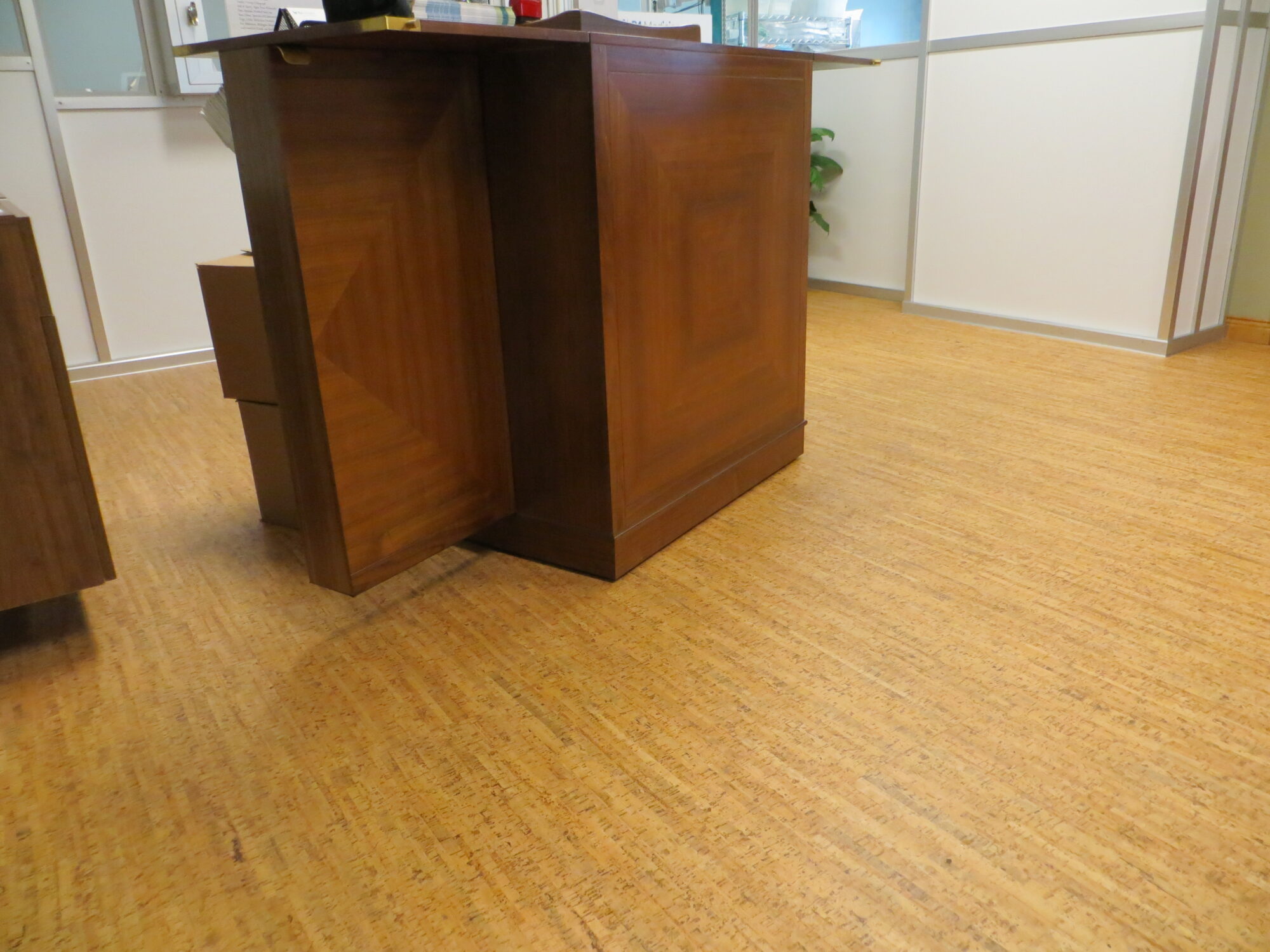The demand for cork flooring has boomed in the last few years, as more people look for environmentally friendly wood flooring and discover the many benefits of this beautiful material. An educated consumer remains the wisest shopper, and it helps all in the industry to discuss not only the advantages of cork flooring but also the disadvantages this material may bring to your living space. Consider both the pros and cons of cork wood flooring before you buy. You may find that this beautiful flooring suits your home.
Pros of Cork Flooring
Cork flooring delivers several valuable advantages to modern homes. See how this type of wood flooring fits into your lifestyle with the following pros:
- Eco-Friendly – cork is generally harvested without harming the trees, making this material one of the most renewable choices on the market
- Durable – cork withstands heavy traffic and remains a leading choice for commercial applications
- Insulating – cork also delivers high levels of insulation, presenting a warm surface for your children, pets and bare toes
- Sound Quality – cork provides a certain level of insulation against sound, which makes it a popular choice for rooms on the second story and for main floor applications above basement living spaces
- Easy to Install – perfect for a DIY flooring project, cork can be installed over an uneven surface and may even go in over your existing floor (speak to a wood flooring installer about this possibility)
- Natural Qualities – cork flooring manufacturers often praise the material’s natural flame resistant properties and highlight suberin, a natural component of cork that creates mold resistance
Whether you’re shopping for a new kitchen floor or installing wood flooring in the family room, basement or bedrooms, cork flooring provides a wide range of benefits. Consider the disadvantages to help you carefully weigh this option.
Cons of Cork Wood Flooring
While cork offers many pros, you should also be aware of the cons of cork flooring, such as:
- Price – cork has become more affordable but it still rings in at higher prices than good quality laminate and vinyl flooring
- Sealing – cork flooring needs to be regularly and properly sealed against moisture to maintain peak levels of durability
- Limited Color Selection – hardwood and engineered wood flooring comes in a vast array of color choices, and while cork flooring manufacturers seem to be continually introducing new selections, this material remains one of the more limited in terms of appearance
- Punctures and Stains – sharp objects and sudden collisions from heavy furniture may puncture your cork flooring, while oil and grease can leave unsightly stains on certain brands of cork flooring
Talk to your wood flooring retailer about the disadvantages of cork flooring and try to understand how this material will perform in your home. It does present excellent value for the money and modern cork floors are made to last for decades with proper maintenance.
Always ask about the warranty information and discuss the amount of sealant used on your choice of cork flooring.

